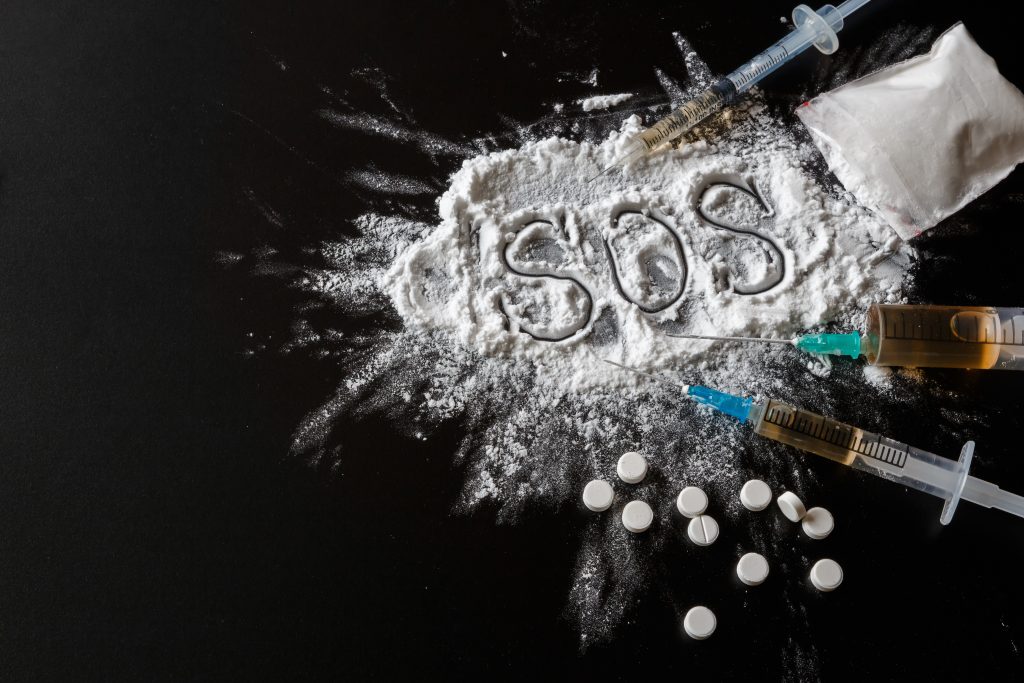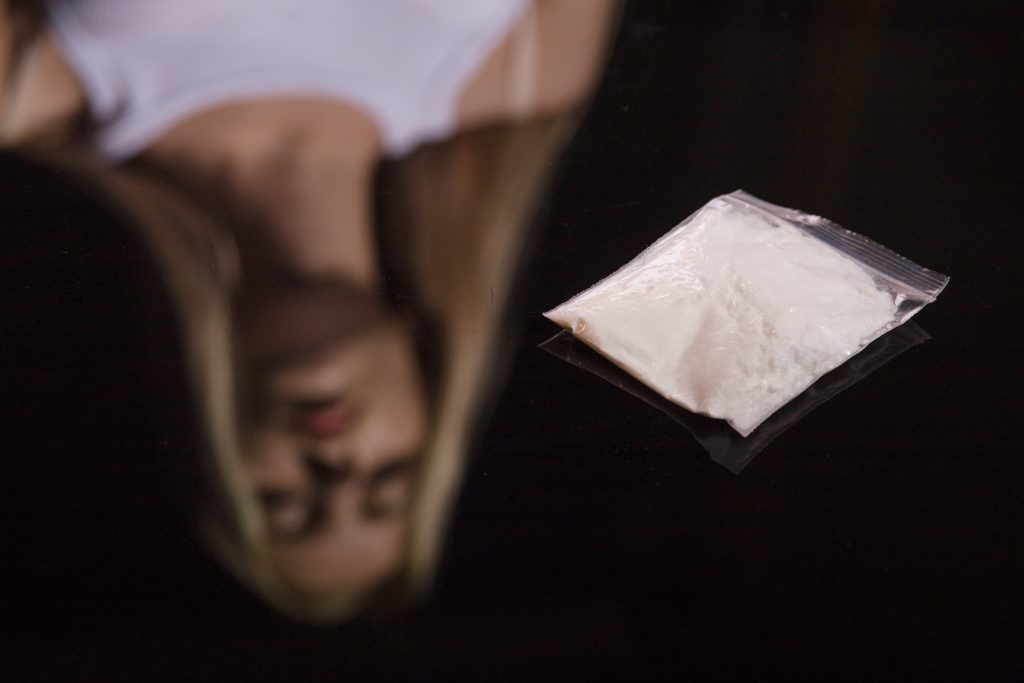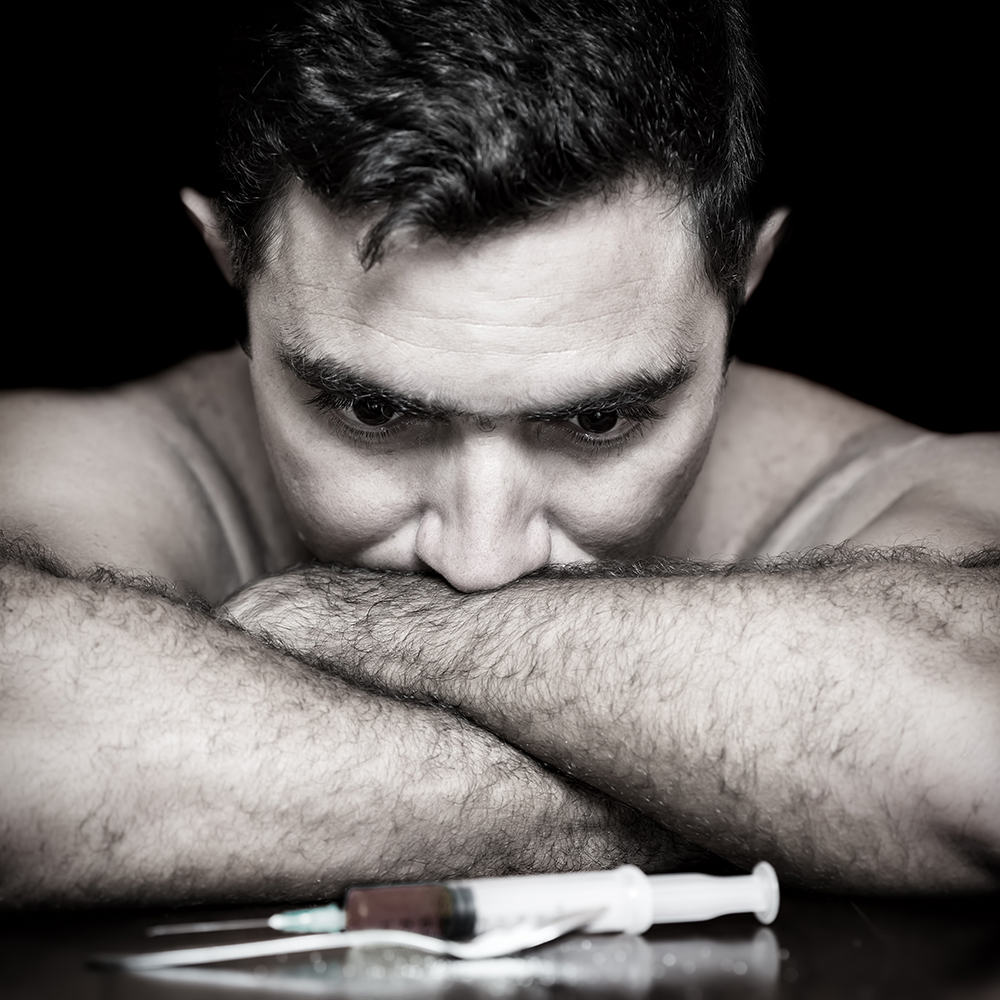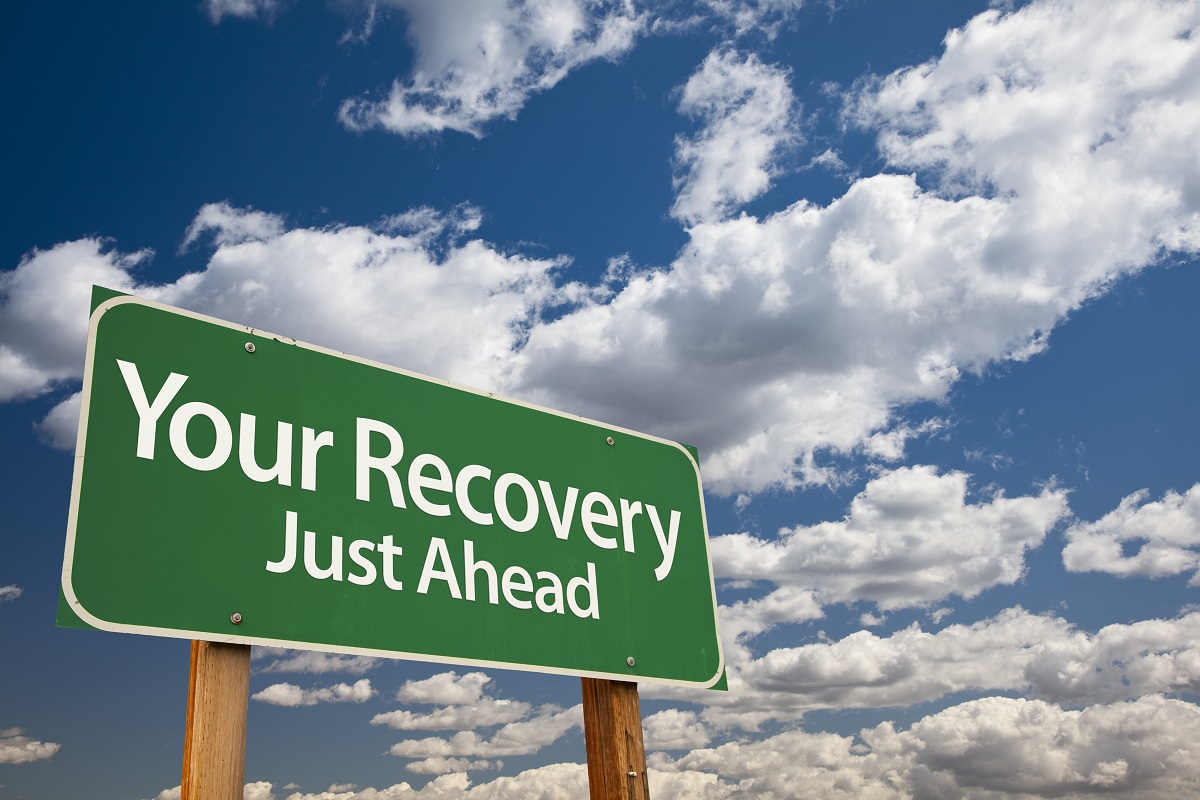Confronting a loved one of their drug use can be very difficult. This is something you wouldn’t want to think of because it’s painful to accept that your friend or family member is doing something harmful to themselves. But as someone who cares for them, you’d want to be able to help and take them away from their dangerous habits. So, how to tell if your loved one has a drug addiction? We will discuss it here. But first, let’s begin with this story to understand how difficult it can be to determine if one has a drug problem.
Some years ago, when print newspapers were still the norm, a local newspaper featured an editorial about a man who suspected that his wife was addicted to drugs. She was neglecting her personal grooming, she wasn’t eating or sleeping and her eyes were bloodshot. Her moods changed abruptly, and she had started to ignore phone calls from friends.
It must be drugs, her husband thought. Unless it wasn’t. She had gone through a great deal of stress over the previous year: a close family member had died in an accident and she had also miscarried a baby. In those circumstances, wouldn’t most people stop eating, sleeping and taking care of themselves? Wouldn’t it be normal to stop wanting to be around people? The husband had a gut-feel that there was more than grief at play, but without evidence of actual drugs, he didn’t know what to do.
This is a conundrum faced by people every day when they are sure that a loved one is addicted to drugs or alcohol. Addicts often become very good at hiding their addictions from others, and as the husband in the story realized, addiction shares symptoms with grief, anxiety, mental illness and a host of other things. Nobody wants to confront a friend or family member with untrue allegations of substance abuse. Nor does anyone want to sit back and let a big problem get even bigger.

General Signs of Drug Addiction
So, how is it possible to tell whether someone has an addiction problem? Of course, the only way to know for sure is if the person actually admits it. But there are some warning signs that loved ones can look for. These are roughly divided into physical, behavioural and psychological signs, with some degree of overlap between these categories.
Drug and alcohol addiction can lead to changes in appearance (for instance, sudden weight loss) or have a detrimental effect on the person’s health. The physical warning signs include the following:
- Eyes may become bloodshot, or the pupils may seem unnaturally small or large
- The individual sleeps too much or too little, may have trouble waking up, or suffers from nightmares
- A sudden change in weight may or may not be accompanied by changes to the person’s usual eating patterns
- Personal grooming deteriorates, resulting in declining physical appearance and odours on the person’s body or clothing
- Physical coordination suffers: the individual might become clumsy and speech might become slurred or disjointed
The physical changes are accompanied by changes in behaviour, including the following:
- There is increased unexplained absenteeism from work, school or other commitments
- Performance at work or school declines, and the individual pays less attention to detail when performing daily tasks
- The individual literally starts to beg, borrow or steal money without providing an explanation
- The person engages in furtive activity and gets angry or defensive when asked about it
- The person loses interest in friends and family, choosing to spend more time alone
- Acts of aggression or impulsiveness get the person into trouble with teachers, work managers or peers
Finally, there are psychological warning signs. These include the following:
- There are sudden personality changes, as the person becomes uncharacteristically aggressive or garrulous
- The person experiences intense and ever-increasing mood swings or angry outbursts
- The individual may seem hypervigilant or agitated
- The individual may appear to be either lethargic or hyperactive
- The person may be paranoid or anxious for no discernible reason
If a loved one is displaying several of these symptoms, it may be time to talk to them about your concerns. If necessary, you can make arrangements for professional intervention. Conversations of this nature are never easy, but it is better to broach the subject and be wrong than to say nothing and watch a tragedy unfold.
These are the general signs of drug abuse and addiction. But we will also cover specific drugs and the signs that a person is addicted to them. The drugs we will discuss include meth, cocaine, and marijuana.
How to Tell if Your Loved One is Addicted to Meth?
Meth is among the most dangerous illegal drugs in the world. It can affect the user’s body in many ways. If you have a loved one who you suspect is using meth, you will naturally feel concerned and fearful of the effects that the drug can do to their health. Maybe you only know the signs that a person is addicted to drugs based on what you see on television or in movies. To help you determine if your loved one is using meth, here are some of the common signs.
- Dilated pupils
- Loss of appetite
- The rapid movement of eyes
- Insomnia
- Mood swings and sudden outbursts
- Hallucinations
- Paranoia
Methamphetamine has many names. It is also called crystal meth, speed, ice, and chalk. It is a very stimulating drug and is very similar to amphetamine which is used in treating the condition of ADHD. Meth is very potent and the user can be easily addicted to it. Over the years, it’s become easier to access and it is natural to feel worried if you suspect that your loved one is on this drug.
Understanding How Meth is being Used
Meth may come in various form and there are several ways that it can be used. Users can smoke, inject, or snort it. Smoking meth is the most common method that this drug is being used. Injecting and smoking the drug is the fastest way for the user to get high. However, it will only last for a short time. Some may take it orally or snort it. The users also feel euphoric but they say that it is not as intense as the other methods of using it.
Since the pleasurable feeling of taking meth only lasts for a short time, users tend to binge when using it. This then leads them to addiction to the drug. Users want to keep on getting high so the take more meth more often. They may even stay awake for several days without needing to eat proper meals as an effect of using the drug. Using meth increases the release of dopamine in the brain. The dopamine is vital in feeling pleasure. The brain seeks more of the stimulant which is meth to keep on feeling the euphoria.
What Methamphetamine Looks Like
Knowing how meth looks like is also important if you want to know if your loved one is using the drug. Apart from knowing the symptoms of meth addiction, it would also be helpful if you know how the drug looks so that you can identify it when you ever see it. Usually, meth is in crystalline powder form. The powder is white and it has no smell. The taste is bitter and it will dissolve in water quickly. There are other meth forms with colours of yellow-gray, pink, and brown. As for crystal meth, they look like ice because they are clear crystals.
Signs of Methamphetamine Addiction
A person using methamphetamine can exhibit particular physical signs. Here are some of the signs to watch out for if you suspect that your loved one is using meth.
- Being physically active with little need for sleep
- Skipping meals or not feeling hungry
- Faster heartbeat and breathing
There are also other signs that you may not be able to observe visually. Users of meth usually have higher body temperature and blood pressure. Another very important sign of something who is addicted to meth is when they are doing what is called tweaking. Tweaking happens when the user is at the end of their binging and they can’t have that high anymore. The user struggles to get that high and euphoric feeling and they have very intense cravings with a strong feeling of desperation.
When the person is tweaking, they fee that they have bugs crawling beneath their skin. They can’t sleep for several days and may even have psychotic phases. Hallucinations are common and they become disconnected from the real world. They can be a harm to themselves as well as to other people. The crash is another phase that you should watch out for. In this period, the body of the user can no longer handle the drugs in the system. What happens is that the user sleeps for a long time. The crash may last for a few days. This can easily be observed by the people around a person who’s using meth.
Physical Changes in a Person Addicted to Meth
Meth addiction is highly dangerous. A person can be easily addicted to it. To tell if someone is using meth, there are usually physical changes that can be observed. Meth can heavily impact the outward appearance of a person. It is distinct and once you know it, you may even spot a passerby and tell if that person is using meth.
The first sign is that the person is very thin. If you suspect that your loved one is using meth, you’ll notice a significant weight loss. Another sign is called having a meth mouth. This is among the most noticeable signs of meth addiction. A person with a meth mouth has lost a number of teeth or they have severe tooth decay. The many dental problems that come with meth addiction is usually because of poor hygiene and lack of proper nutrition. Dry mouth is also a problem as well as teeth grinding which happens when the person is using meth.
Skin sores are another sign of meth addiction. The sores appear because the person on meth hallucinates that there are insects under their skin, leading to constant scratching which creates the sores. A meth addict who stops using the drug will also exhibit signs of withdrawal. This includes several mental symptoms that can be severe especially for those that have been using the drug for a long time. Intense cravings, fatigue, anxiety, psychosis, and depression can be experienced by a person going through meth withdrawal.
If you observe any of these signs on your loved one, you should talk to an addiction specialist so you can plan for intervention and arrange an addiction treatment program for your loved one. The sooner you recognize the symptoms, the sooner the habit can be dealt with. Remember that a person on meth can cause harm to himself as well as to those around him.

How to Tell if Your Loved One is Addicted to Cocaine?
Cocaine affects a person in ways that are similar to other illicit drugs. The brain is rewired so keep on seeking the drug to achieve that high. It can be very troubling to think that your loved one is using cocaine. Knowing the cocaine addiction signs will allow you to assess the situation and plan how you can help your loved one to deal with their drug addiction problems.
There are a number of signs that you can observe if a person is using cocaine. Their behaviour and general appearance begin to change. Let’s take a look at these signs so you can be informed if it’s time to step in and intervene.
Related article: How Cognitive Behavioural Therapy Works for Treating Drug Addiction
How a Person Behaves When on Cocaine
Cocaine is a stimulating drug. When a person takes it, he or she can become excessively talkative, confident, and full of energy. The person using cocaine also experiences an improved sense of self which leads to being more social. There may also be an increase in sexual activity during this time.
People using cocaine are energetic and excitable for no apparent reason. They don’t need to eat or sleep as regularly as they should. As for the behavioural signs, they may experience delusions, hallucinations, and paranoia. You may observe that they are excessively aggressive and they have a lack of proper judgement.
You can tell that a person is using cocaine if you observe their nose and you see some traces of white powder. It means they’ve been snorting cocaine. This won’t be the case if they use other methods such as injecting the drug. People snorting cocaine may also get runny nose every now and then. For those who have been using cocaine for a long time, they usually get nosebleeds often.
If the cocaine user injects the drug, the physical signs that they are using it are the needle marks on the arms, hands, feet, legs, and even neck. Those who smoke the drug may exhibit burned lips or fingers. Anyone using cocaine will also have a higher heart rate. This is dangerous as this can lead to a heart attack or cardiac arrest.
Behavioural Signs of Long-term Cocaine Use
There are several behavioural signs when a person is in long-term cocaine use. Try to observe if your loved one is having any of these behavioural signs so you can decide on what to do on how you can help them with their addiction.
They are Moody
After being so energetic and excitable, the drug will start to lose its effects and the person can start to get moody. He or she can be more hostile or more aggressive during this time. They may not seem to be reasonable and their anger or violent behaviour may be ignited out of the most mundane causes.
They Avoid People
When the effects of cocaine have subsided, the person may feel the need to withdraw and just avoid people. They don’t want to socialize which is the exact opposite as when they are high. They also take substances that will help them sleep such as alcohol or sleeping pills. During a crash from cocaine use, they will also sleep excessively. There may be times that they’ll just sleep for a number of days.
They have Money Problems
Cocaine is among the most costly illicit drugs. Someone dealing with a cocaine addiction will eventually experience problems with money. Addicts may find it difficult to keep a job because of the drug’s effects on their overall functionality. This leads them to borrow money excessively or even steal just so they can keep on using the drug.
They Experience Physical and Mental Effects
People using cocaine lose their sense of smell. This goes with the frequent runny nose and nosebleeds. Also, they will develop depression and anxiety as time goes on. Another sign is that the person becomes too nervous and paranoid. When they will be on recovery from cocaine addiction, they will be required to have treatment for both the addiction and the mental disorders that were developed because of the habit.
They Develop Tolerance
Just like other illicit drugs, people using cocaine will develop tolerance. What happens during this time is that they find it necessary to take higher doses just so they can get the euphoric feeling that they experienced during the first few times that they used the drug.
They Experience Withdrawal Symptoms
After using huge doses of cocaine, if the user begins to consume less of the drug or stops abruptly, they will experience withdrawal symptoms. They may become anxious, depressed, paranoid and violent. Physically, they may have seizures and heart problems.
These are the signs of cocaine addiction. The first you’re most likely to notice are the behavioural changes. There are plenty of treatment options for your loved one once you confirm that they are having cocaine addiction problems. Immediately talk to an addiction specialist so that you can be guided as to what to do in the next steps. Earlier intervention and treatment will save your loved one’s life.
How to Tell if Your Loved One is Addicted to Marijuana?
The signs of meth and cocaine use are very distinct. However, when it comes to marijuana, the signs may not be that apparent. This depends on many factors. Nevertheless, we’ll share with you some of the most obvious signs of marijuana addiction here.
Marijuana comes from the dried flowers and leaves of the cannabis plant. There are many ways to consume it. Users can smoke marijuana using cigarettes, cigars, pipes, and water pipes. Marijuana may also be consumed by making it into a drink such as tea. It can also be included in various food such as brownies.
Marijuana can affect the user because it has THC and other compounds that have psychoactive effects. As the most common illicit drug, many young people use marijuana and become addicted to it. If you suspect that your loved one is getting hooked on marijuana, then it best to learn about the signs of marijuana addiction what you can do to help them.
How does Marijuana Addiction Affect the Body?
When marijuana is smoked, its psychoactive chemicals such as THC enters the user’s bloodstream and makes its way toward the brain. The user will feel relaxed and he or she will feel a sense of euphoria.
The “high” that the user gets from marijuana may be different from one person to the next. Some may just feel relaxed while others experience changes in their sensory perception. For users who consume marijuana either as a beverage or food, the effects may take longer to be felt as compared to smoking the drug.
A lot of people like using marijuana because it gives them that pleasant feeling. However, this may not be the case for each person using the drug. Some may feel anxious or panicky. Some may even experience hallucinations because of marijuana.
Signs of Marijuana Addiction
Since the effects of using marijuana can be varied, it’s going to be a challenge to tell if a person is addicted to it. However, here are some of the symptoms that are common in most people with marijuana addiction.
- Eyes that are red and bloodshot
- Laughing too much for no reason
- Talkativeness
- Binge eating especially sweets
- Lethargy and excessive sleep
- Poor body coordination and delayed reaction
- Feeling panicky and paranoid
If you know how marijuana smells like, you’ll be able to identify if your loved one is using the drug. The smell of marijuana is skunk-like and after smoking it, the smell sticks to the person’s clothes, hair, bedding, and other furniture in their room or house. Just like other addictive drugs, the shifts in the user’s behaviour will be gradual and subtle. However, as they continue to use marijuana, the behavioural changes will be more obvious.
An example of a common sign that the person is using marijuana is that they become secretive and they no longer engage in the activities that they used to enjoy. They may stop seeing their good friends and other people who are important to them. They become distant and preoccupied with other things. Another sign of a behavioural change among marijuana addicts is that they do not seem to be as motivated as they once did.
There are also cases of marijuana addiction where the person becomes more reckless. They may drive their car or vehicle while they are high. Their relationships may also suffer. They may make a poor decision on their finances and end up dealing with legal issues.
If you can’t tell for sure if the person has marijuana addiction based on behavioural signs alone, you can check if they have any drug paraphernalia that they use for their marijuana consumption. See if they have any pipes, rolling papers, bongs, cigar papers, roach clips, and e-cigarettes. While they may only be using this for tobacco use, it is possible that they are also using it for marijuana.
Potency of Marijuana
Compared to other addictive drugs, marijuana doesn’t affect the body severely. Nevertheless, it is still dangerous because marijuana’s potency is steadily rising in the past decades. The weed that is available these days have more THC chemical and the user may suffer from psychiatric problems because of this.
You will know if someone is using marijuana with high THC levels if they experience sudden psychotic episodes. They may seem far away and detached from reality. This can be worse for people who already have mental health issues but these psychotic episodes can happen to any person using marijuana that is very potent. A long-term marijuana user may also experience withdrawal symptoms upon stopping their use of the drug. They can be more irritable and they may have trouble falling asleep.
If you observe any warning signs that a person is addicted to marijuana, it is best that you talk to them so you can determine if there is a problem and you can propose ways on how the problems may be addressed. For many users, they think marijuana doesn’t cause trouble. However, continued use will eventually affect their work or school life as well as their relationships with their loved ones. Marijuana addiction can also lead a person to participate in dangerous and risky activities.
In many ways, marijuana addiction creates similar problems that other addictive drugs can cause. But with the right intervention and marijuana addiction treatment, it will be easier for the person to confront and overcome their addiction to this drug. Several treatments are available for someone who wants to stop their marijuana use. Some of them include motivational therapy, therapeutic management of behaviour, cognitive behavioural therapy and others. An addiction specialist will be able to guide you and your loved one on which treatment will be most suitable.
What to do if Your Loved One Has Drug Addiction Problems
For both short and long-term users of drugs like marijuana, they may experience several mental as well as physical health issues. This can cause concern and suffering for the person’s family and friends. If you care about your loved one and want to determine if they are indeed using drugs, then it is important that you know the symptoms of drug addiction. This way, the person can be helped and guided into seeking treatment to stop the drug use.
End the Codependent Relationship with the User
If you are close to a person who has a drug addiction, then you may not realize it but you probably have a codependent relationship with them. With codependency, you want to help them and show them that you love and care for them. However, what happens is that you nurture their addiction instead. This damages the person in the long run. Here are some of the signs that you have a codependent relationship with a person with a drug addiction problem.
You take responsibility for them
When you feel you have to cover up for the person or justify their behaviour, then you have a codependent relationship. You want to show you care by protecting them from the consequences of their actions. You feel compelled to keep them happy and that they feel loved in spite of what’s happening because of the addiction. Have you called their boss to make excuses on their behalf? Then this is a clear sign of codependency.
You put them first before yourself
Yes, you truly care and love this person. In a codependent relationship, you put their needs first before your own. What happens is that you begin to ignore your own values and feelings just so you can continue on supporting the person even if you know it’s wrong. You begin to neglect yourself and focus on your loved one instead.
You’re afraid to be abandoned
In a codependent relationship, you are afraid that the person will leave you. You are afraid to feel alone, rejected, or abandoned. Even if things are already terrible for you, you hold on because you think that being alone is worse than this. You have to be careful when the relationship has come to this point. You have to assess what’s truly worth it. Instead of helping your loved one, you’re being dragged deeper into the pit they’ve dug out because of their addiction.
You can’t talk about what you feel
When you’re in a codependent relationship, you’ll have trouble recognizing what you truly feel. You may feel dissatisfied or afraid. You may feel that you deserve more than this but you can’t talk about it that freely. Instead, your focus is not on yourself but on helping your loved one in the best way that you know how. Usually, people in codependent relationships end up supporting the addiction just to show their affection for the person.
You can’t set your personal boundaries
Observe yourself and your relationship with the person who has drug addiction issues. Are you always saying yes to them? Do you give in to what they want even if you know it’s wrong or it makes you uncomfortable? By saying yes, you may think that you’re helping your loved one, and in turn, you think you’re helping yourself. But you know deep down that this is not true.
You may remember a time when the relationship wasn’t a codependent one. You may be clinging on to the thought that you can get things back to the way it was. However, drug addiction can change the person and the relationship. If you really want to help your loved one, seek help first. Go to a therapist so you can talk to someone about your struggles and also so that someone can guide you on what you can really do to help the person with drug addiction.
Helping Your Loved One with Drug Addiction
The first step to help your loved one with drug addiction is to end the codependent relationship. Yes, the steps we will suggest here may seem quite harsh but it’s the only way to make them see that there are consequences to their actions. Don’t feel guilty that you are being tough on them. You know that you’re doing this because you love them and you want them to get better. Here are some steps to help them.
- Acknowledge that addiction is not your fault. Addiction is a disease and it has to be treated and managed by the person with addiction problems. They have to do it themselves. You can’t fight it on their behalf.
- Be firm in setting your boundaries. Learn to say no and stand by it.
- Be encouraging and supportive. Talk to your loved one about treatment options.
- Look for a medical professional whose expertise is in addiction treatment. Do this not just for your loved one but for yourself as well. Recognize that therapy will be beneficial for you, too.
- Be the best example for your loved one when it comes to healthy living. Encourage them to eat well and make them join you during your exercise routine.
- When you support your loved one, don’t cover up their problems which have been caused by their addiction. They have to face the consequences of their actions. Just be there to stand with them in support.
- Always be optimistic even when it gets tough. When they relapse, don’t lose hope. They’re not failing. Relapse normally happens when someone is trying to recover from their addiction. Keep on encouraging them to stay clean.
What to do when a Relapse Happens?
When your loved one sought for help so that they can overcome their drug addiction, you can help them to have a better chance at succeeding if you support them in looking for professional help and guidance. Any recovering addict will feel that relapse is something that will happen at any moment. It can be stressful especially when they have just completed their rehab program.
They have to be prepared that the withdrawal symptoms will be terrible. The cravings will be intense that they feel they won’t be able to survive the day without taking the drug. When they do give in and relapse, take them back to the doctor so that a new treatment program can be created. Addiction is a disease and relapse is a part of this disease. Don’t make the person feel like a failure. Instead, help them get up at each time so they can recover successfully. Relapse becomes a big problem if your loved one returns to their habit and refuses treatment. But if they want to get help each time they relapse, support them.
When you’ll be looking for the options for addiction treatment, you can ask the medical professionals for advice on how to handle relapse. For many programs, the new participant is paired with a sponsor who has graduated from the program. The sponsors will be able to guide your loved one in understanding how the recovery will go. They will also be a support system for the person so that they will be discouraged whenever they feel like they’re going to relapse.
The family and friends of a person recovering from addiction should also help in making sure that they don’t tempt the person to relapse. They may not know it but there may be substances in the house that may remind the person of their bad habits. What loved ones of a recovering addict can do is to include them in healthy meals and physical activities such as sports. Encourage them to build hobbies that can be pursued together with a group of friends. This will surely help a lot in creating a new routine for someone recovering from drug addiction.
Takeaway
As a family or friend of a person dealing with addiction, it is important that you do not judge them or put them to shame. Truly, your loved one wants to improve themselves so that they can have control of their life again. Hopefully, this guide was able to help you with how to tell if your loved one has a drug addiction. Each addictive drug has a distinct set of signs of abuse. Nevertheless, they also share some similar signs that you can observe. If you confirm that your loved one is using drugs, it is best to talk to an addiction specialist so you can be guided about the next steps such as staging an intervention for drug addiction.
Related article: Can Online Recovery Programs Help with Drug Addiction?






